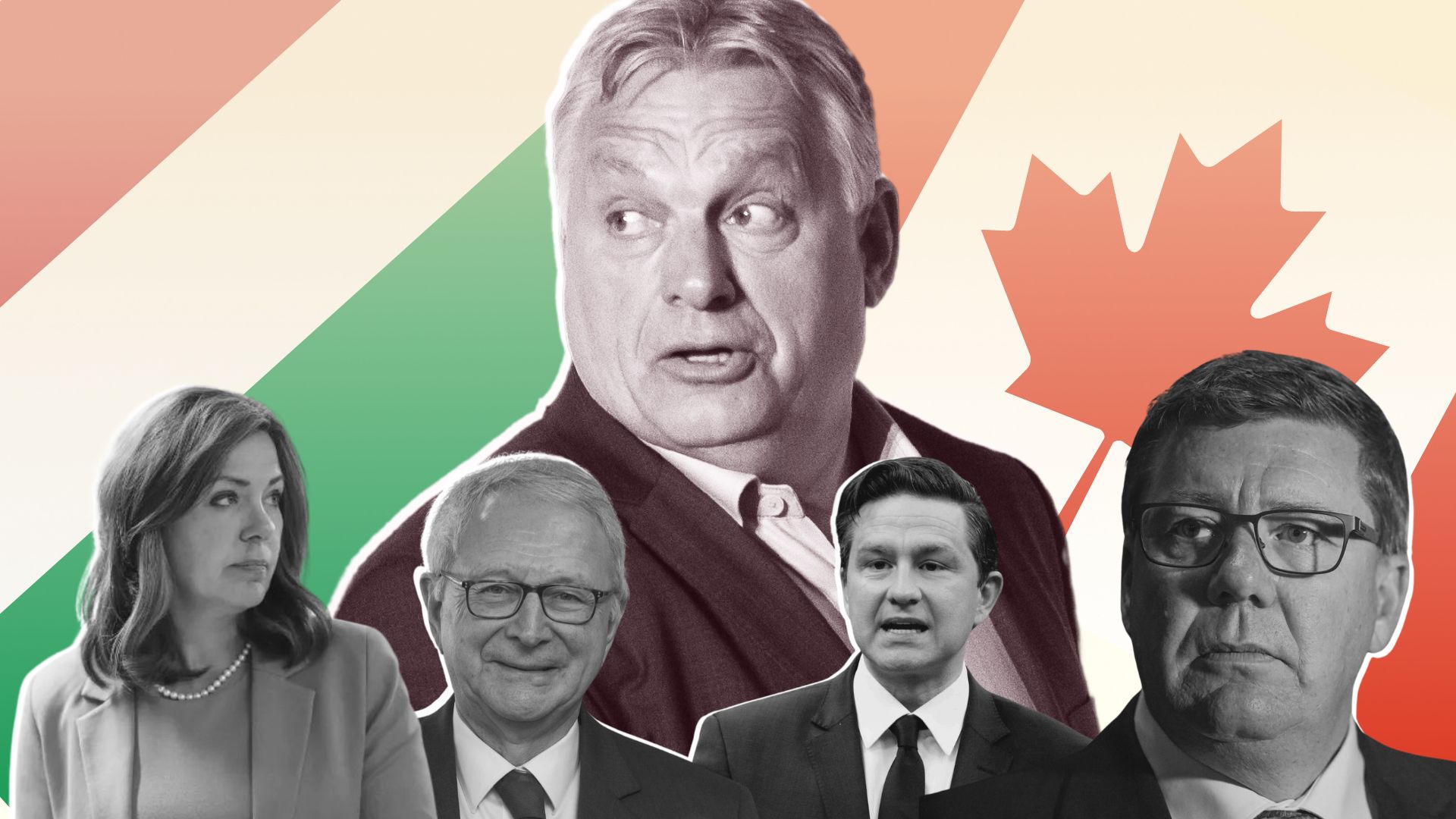A new report by Over Zero, a research and training group founded in response to the global need to counteract and prevent identity-based violence, examines the link between systematic targeting of queer and trans communities and democratic backsliding around the world. Decoding LGBTQ Scapegoating shines a light on how targeting LGBTQ+ communities is a central component of the authoritarian playbook that autocratic governments employ.
“LGBTQ scapegoating is a threat to democracy, cloaking itself as culture war politics as usual,” the report states.
This is not something that is only happening in Eastern Europe. Historian and journalist Anne Applebaum (to whom I am indebted for bringing this report to my attention) has written about how it was weaponized in recent years by the Hungarian government of Viktor Orbán, and in Poland under former president Andrzej Duda. But also in the U.S., Republicans have been taking cues from Orbán for several years now. Florida’s “Don’t Say Gay” law was directly influenced by Hungary’s laws. And as we have seen over the past year, its influence has been creeping into Canada as well, and not by accident or just because conservative parties in this country have a particularly strong case of monkey see, monkey do.
Over Zero lists six interconnected and overlapping goals of LBGTQ+ scapegoating, relating to stigmatizing queer and trans people by censoring discussions or depictions of them; mobilizing the voter base by turning the scapegoated group into common enemies; exploiting the fears of the scapegoated groups to win electoral support and win political contests; manufacturing controversies to polarize society along fault lines that will unify an authoritarian movement; using fear or anger toward the scapegoated groups in order to distract from other critical issues; and targeting those scapegoated groups for political violence, which normalizes and desensitizes it for the public.
Applebaum uses the example of how this played out in Hungary in 2020, where the constitutional amendment to defend “Christian values” provided cover for Orbán also changing election laws that made it harder for his political opponents to run against him. In regard to Poland, she writes about how Duda ginned up fear of a “rainbow plague”—that was created entirely by propagandists because trying to stoke fear of migrants was no longer working for them politically. Duda declared that “LGBT are not people; they are an ideology”—an ideology that he deemed “even more destructive than communism” as part of his justification.
The Canadian examples are slightly milder in flavour, but no less toxic to our democracy. In New Brunswick, the government of Blaine Higgs is on its last legs as the province heads toward an election, and Higgs needed the distraction from his sinking popularity, so he manufactured the controversy around Policy 713, the school board policy for providing safe spaces for trans and gender-diverse youth. Higgs claimed to have received hundreds of letters from concerned parents when none were on file, and this drew the attention of certain Christian Nationalists into Higgs’s orbit. Higgs has been slowly replacing socially progressive Tory stalwarts in his party with more Christian Nationalists, who he plans to run under his banner in the election.
In Saskatchewan, Premier Scott Moe is also facing an election this fall, with tumbling polling numbers, a faltering economic performance, a blank record of accomplishments and divisions within his own party. With Higgs having publicly blazed the trail for the use of LGBTQ2S+ scapegoating in his own province, Moe followed suit and one-upped Higgs by invoking the Notwithstanding Clause to ensure that his anti-trans legislation could not face court challenges, hoping that it would give him the ammunition he needed to distract, polarize and mobilize his base in order to win that coming election.
Alberta is a slightly different case because Premier Danielle Smith has just recently won an election with a comfortable majority, so she didn’t need to employ this scapegoating as an electoral tactic. However she faces a different threat to her power, being that of her reactionary base—the face-eating leopards who ate the face of her predecessor, Jason Kenney, and who will turn on her if she doesn’t continually feed them the red meat of culture war talking points and political violence that they crave. This is happening as her government is full-on enacting the authoritarian playbook: interfering with and undermining independent offices, undermining the separation of powers, contesting the division of powers federally, engaging in voter suppression and setting themselves up to damage democracy at the municipal level.
The scapegoating is spreading nationally, most especially in the normalization of violence against the queer and trans communities, seen most especially with the demonstrations against drag storytimes (often played out by the same players in the so-called “Freedom Convoy” that occupied downtown Ottawa, whom Conservative Party of Canada leader Pierre Poilievre has endorsed), the calls for violence and the need for the federal government to step up and provide additional security funding for Pride organizations around the country as a result. The federal Conservatives have been echoing much of the same anti-trans sentiment as those three provincial governments, claiming so-called “parental rights” to be involved and promising to invoke the notwithstanding clause federally (claiming it will only be for the criminally accused and convicted). We cannot forget that they have also been taking lessons from Orbán, who is frequently palling around with former Conservative prime minister Stephen Harper.
Applebaum wrote that the Over Zero report can help connect the dots between seemingly disparate campaigns in different places. “It’s a smaller piece of the larger authoritarian narrative, and therefore worth trying to understand, so that you will recognize LGBT scapegoating when you see it,” she wrote. We see it in Canada, with the authoritarian playbook being passed around. We need to be vigilant if we want to safeguard our democracy.


 Why you can trust Xtra
Why you can trust Xtra


